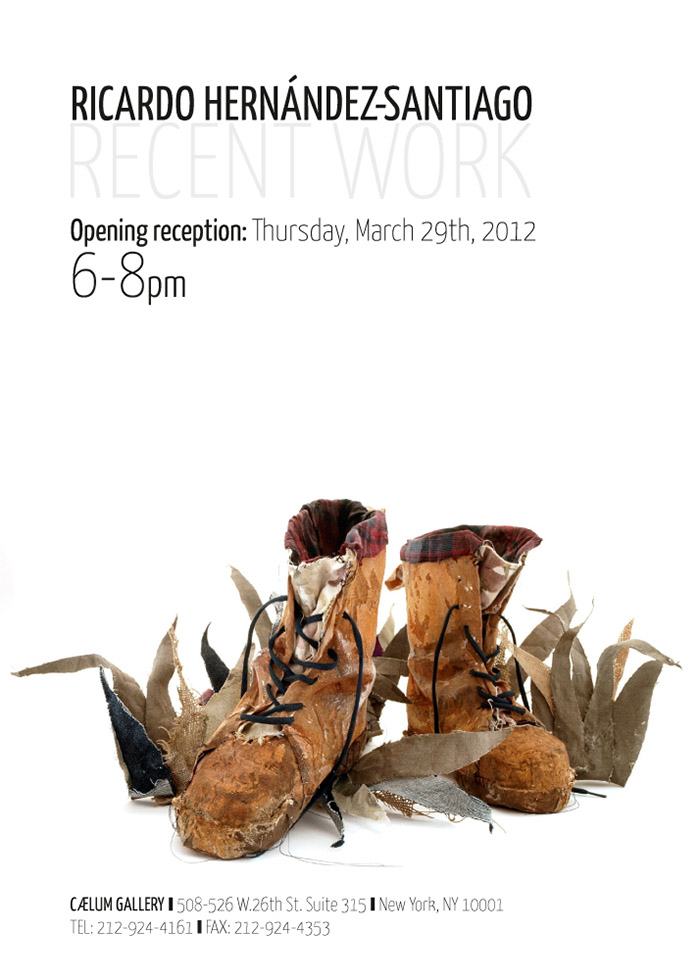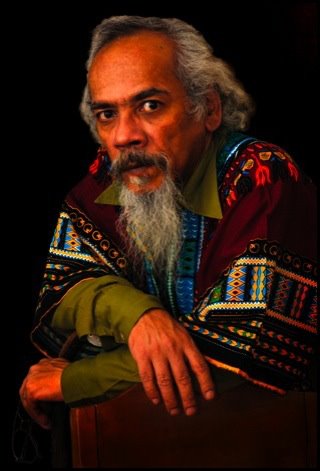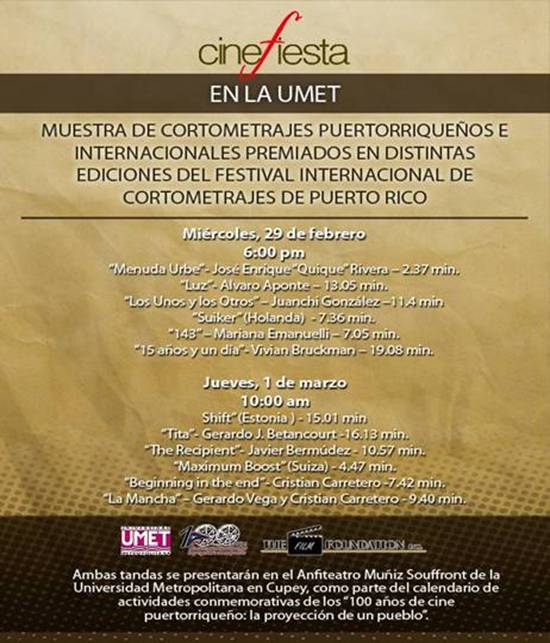All posts by escalona
Congressmen seek to reinstate SNAP in Puerto Rico
Congressman Charles B. Rangel joined Resident Commissioner Pedro R. Pierluisi (Puerto Rico) and Colleagues in introducing legislation today to reinstate the SNAP (formerly the ‘food stamp’) program in Puerto Rico. H.R. 4280, the Puerto Rico Supplemental Nutrition Assistance Program Restoration Act, would provide the Island with $457 million in additional federal funding each year to support its food assistance program for low-income individuals.
“Puerto Rico deserves the same food assistance as the rest of the country,” said Rangel. “Our Manhattan Congressional District has many citizens of Puerto Rican descent whose families desperately need our help to meet basic nutritional standards.”
Presently, Puerto Rico receives from U.S. Department of Agriculture’s Food and Nutrition Service (FNS) an annual block grant that is appropriated by Congress in lieu of SNAP. This block grant limits the amount of assistance available to Puerto Rico’s indigent population in terms of their ability to afford healthy food.
If this bill is enacted into law, Puerto Rico would join the 50 states, the District of Columbia, and two territories—Guam and the U.S. Virgin Islands—as jurisdictions that participate fully in the Supplemental Nutrition Assistance Program (SNAP).
According to a USDA report, conversion to SNAP would increase the number of households that receive nutrition assistance in Puerto Rico by an additional 85,000 households—consisting of 220,000 individuals. It would also mean an additional $457 million dollars in federal funding for the Island each year.”
“The USDA report confirms that the decision to deprive Puerto Rico of SNAP funds twenty years ago also deprived over 200,000 Puerto Ricans who are in most need of food assistance,” said Rangel. “Meanwhile, the 50 states, Washington, D.C., the U.S. Virgin Islands, and Guam all enjoy access to vital SNAP funds. This is an inequity that makes no moral sense. The people of Puerto Rico deserve to receive the same financial aid necessary to meet high-quality nutritional standards.”
KEY FACTS REGARDING SNAP IMPLEMENTATION IN PUERTO RICO
- From FY1974 through FY1982, Puerto Rico participated in the Supplemental Nutrition Assistance Program (SNAP)—then known as the “food stamp program”—along with, and no differently than, each of the 50 States and D.C. Guam, Puerto Rico, and the U.S. Virgin Islands were each added to SNAP by Congress in 1971. Although Puerto Rico was later dropped from the program, SNAP coverages continue today in Guam and the U.S. Virgin Islands.
- In 1981, Congress replaced SNAP in Puerto Rico with an $825 million block grant—appropriated each year as the “Nutrition Assistance Program” block grant for Puerto Rico. That level of funding represented about 75% of SNAP expenditures in Puerto Rico at that time (which was $1.1 million in FY1982). As a result, the block grant has not adjusted annually to account for changes in economic need or population in Puerto Rico or to keep adequate pace with costs for obtaining a basic, daily nutritional diet on the Island. The vulnerable U.S. citizens residing in Puerto Rico are treated differently when it comes to federal nutrition assistance than if there they were living in one of the 50 States, D.C., Guam or the neighboring U.S. Virgin Islands. In 1986, Congress amended the law to index the annual amount for the Puerto Rico block grant going forward for inflation but it is still indexed on an arbitrary base amount.
- In the 2008 Farm Bill Congress directed USDA to examine the feasibility and effects of restoring SNAP in Puerto Rico in lieu of continuing the block grant arrangement (Sec. 4142 of P.L. 110-246).
- USDA submitted the required report to Congress in June 2010. Among the findings about transiting from a block grant to SNAP in Puerto Rico, are—
- 85,000 additional households in need would receive assistance that they are unable to receive now under the block grant (a 15% participation increase); and
- Average monthly benefits in Puerto Rico would increase by about 10% or $23 per household narrowing the gap between average benefit amounts received in the rest of the U.S. under SNAP and the amounts currently received under the limited block grant applying to Puerto Rico.
- Both a two-page summary of the report, and the report in its entirety (193-pages) is on-line at: http://www.fns.usda.gov/ora/
MENU/published/snap/ ProgramDesign.htm
Puerto Rican Scientist Fermin Tanguis
Tangüis cotton
Main article: Fermín Tangüis
Fermín Tangüis poses with an example of the “Tangüis cotton”
In 1901, Peru’s cotton industry suffered because of a fungus plague caused by a plant disease known as “cotton wilt” (more correctly, “fusarium wilt”) caused by the fungus Fusarium vasinfectum.[14] The plant disease, which spread throughout Peru, entered plant’s roots and worked its way up the stem until the plant was completely dried up. Fermín Tangüis, a Puerto Rican agriculturist who lived in Peru, studied some species of the plant that were affected by the disease to a lesser extent and experimented in germination with the seeds of various cotton plants. In 1911, after 10 years of experimenting and failures, Tangüis was able to develop a seed which produced a superior cotton plant resistant to the disease. The seeds produced a plant that had a 40% longer (between 29 mm and 33 mm) and thicker fiber that did not break easily and required little water.[15] The Tangüis cotton, as it became known, is the variety which is preferred by the Peruvian national textile industry. It constituted 75% of all the Peruvian cotton production, both for domestic use and apparel exports. The Tangüis cotton crop was estimated at 225,000 bales that year.[16]
PRdream mourns the passing of Louis Reyes Rivera, 1945 – 2012
* Professor Reyes is a professor of Pan-African, African-American, Caribbean and Puerto Rican literature and history whose essays and poems have appeared in numerous publications, includingAreyto, Boletin, The City Sun, African Voices, and in five award-winning collections: In Defense of Mumia; ALOUD: Live from the Nuyorican Poets Cafe, Of Sons And Lovers,Bum Rush The Page, and his own Scattered Scripture. Known as the Janitor of History, poet/essayist Louis Reyes Rivera has been studying his craft since 1960 and teaching it since 1969. The recipient of over 20 awards, including a Lifetime Achievement Award (1995), a Special Congressional Recognition Award (1988), and the CCNY 125th Anniversary Medal (1973), Rivera has assisted in the publication of well over 200 books, including John Oliver Killens’ Great Black Russian (Wayne State U., 1989), Adal Maldonado’s Portraits of the Puerto Rican Experience (IPRUS, 1984), and Bum Rush The Page: A Def Poetry Jam(Crown Publishers, 2001).
Louis Reyes Rivera is an award-winning poet; an academic and professor with a specialty in African American, Puerto Rican, and Caribbean literature and history; a political activist; and a radio show host. He is the author of three poetry collections: Scattered Scripture (1996), This One for You (1983), and Who Pays the Cost(1977). Known as the Janitor of History, Rivera is the recipient of numerous awards, including a lifetime achievement award from the University of Massachusetts at Amherst (1995), a Special Congressional Recognition award (1988), and City College of New York’s 125th Anniversary Medal (1973).
Scattered Scripture won the 1996 poetry prize from the Latin American Writers Institute. A volume of highly crafted poems of militant and radical perspective, it is a literary masterpiece that attempts to translate history into poetry, covering the chapters missing from official renditions of history. This collection took twenty years of research to create. The first poem completed for the book, “(what are they doing),” was written in 1974, and the last poem, “(like toussaint, so marti)” was written in 1995. In between came all the other works as responses to his research. Scattered Scripture contains forty-one pages of notes that provide the sources and historical context for the poems, making the book complete as a poetic song, a historical document, and an instructional device.
PRdream mourns the passing of Jimmy Sabater, Sr. – April 11, 1936 – February 8, 2012
Jimmy Sabater, Sr. was born in New York City. He was a Latin musician and singer who was a three-time winner of the ACE Awards. Sabater sang with Joe Cuba and his Sextet in both Spanish and English, representing the most successful band singing Latin Music in English. The band was also one of the leaders of the Latin Boogaloo.
Sabater is the son of Nestor Sabater and Teresa Gonzalez of Ponce, Puerto Rico. He grew up in East Harlem, the Spanish Quarter of New York City known as “El Barrio”. Like most teenagers in the neighborhood, he played stickball, flew kites, and harmonized the tunes of the popular R&B groups and vocalists of the day such as Nat King Cole.
He was inspired by percussionists such as Willie Bobo, Uba Nieto, Papi Pagani, Monchito Muñoz, and Willie Rodriguez. With encouragement from many of these same drummers who were from “El Barrio”, Jimmy practiced playing the timbales, the standing drum kit made world-famous by the great “Rey del Timbal”, Maestro Tito Puente. It was during a 1951 stickball game between the Devils and the 112th Street Viceroys that Jimmy’s life would turn towards history. A young man named Gilberto Calderon of the Devils met Jimmy, and invited him to a party. The two became fast friends. They had a lot in common. Both wanted to be musicians after being influenced by the music of Machito, Marcelino Guerra, Noro Morales, Tito Puente and Tito Rodriguez. 1954 saw the Joe Panama Sextet as one of Spanish Harlem’s most popular music groups. When Panama’s Conguero, or conga drummer, left the group, Jimmy recommended his friend Gilberto for the job. Soon after, bandleader Joe Panama fired his sidemen and replaced them with others. The now unemployed musicians which included vocalist Willie Torres and pianist Nick Jimenez formed a group which included bassist Roy Rosa, vibraphonist Tommy Berrios, timbalero Jimmy Sabater, and conguero Gilberto Calderon (who had been selected by the musicians to direct the band).
I’m Puerto Rican & I Sold Drugs in The Bronx…
HERE’S THE CONTROVERSIAL CLIP:
Ivan Sanchez, Bronx County Buzz Examiner
January 9, 2012 – Like this? Subscribe to get instant updates.
I first learned of the latest Facebook / Twitter controversy by way of a new friend, Julio Ricardo Varela, of the popular Latino Rebels organization when he wrote to tell me he just wanted to share a video titled, “ABC’s “Work It” Show: Insulting Puerto Ricans.”
I braced myself as I clicked play and prepared to watch the great insults spill out onto the screen, into my brain and out of my fingertips typing up my response of anger and insult on Facebook sharing with the world how disappointed I was about another disrespectful portrayal of Latinos on the screen.
But then an interesting thing happened when the video ended… nothing.
I had to go back and watch it again to be sure my lack of outrage wasn’t a mistake since a lot of the people I respect in this world (George “Urban Jibaro” Torres, Julio Pabon Sr., Rodrigo Sanchez-Chavarria, Rhina Valentin and the Reverend Carmen Hernandez, just to name a few) were already up in arms writing about their own disappointments and where to meet to force an apology out of ABC.
Advertisement
Latinos are fast if nothing else… But still, for me there was nothing.
And after a third view I drafted my simple response to Mr. Varela while stating, “This is where I kind of get stuck somewhere between entertainment and reality… For me personally, this wouldn’t have bothered me as much as it seems to be bothering so many others… But then again, I have had to deal with the whole “stereotypical” story-telling label after Next Stop came out… Certain people saying I was portraying us in a bad way, when in actuality I was just portraying my neighborhood, from my eyes… No apologies, no excuses, no glorification.. Just honest… So again, this isn’t a battle I’d choose… While I do respect that others would want to go to war over it…”
Stereotype – A word I truly have come to despise since becoming a professional writer.
To me the word is as meaningless as the one liner thrown into ABC’s Work It looking to garner some kind of shock value out of a new show. My belief is the line was probably written by a Caucasian male whose fascination with movies like Empire, Carlito’s Way and Scarface have led him to believe that Latinos know how to sell drugs very well – and well, I’ll take that as a compliment being that I sold drugs and I was absolutely horrible at it.
I may be the only crack dealer from the Bronx to have had a career that lasted all of a few hours on the corner. And for the sake of full disclosure let me not forget about the time I smoked all of my profits and re-up money when I took a quarter-pound of weed on consignment… Not the sharpest drug dealer to ever walk the concrete slabs of New York.
To ignore that many of us have walked these paths or witnessed many in our neighborhoods walk these paths before finding their way in life is to pretend Judge Edwin Torres didn’t write two brilliant works, Carlito’s Way and After Hours. To pretend that Piri Thomas’s Down These Mean Streets doesn’t exist as a Latino piece of literary genius and the list surely goes on and on.
The characters Judge Edwin Torres, Piri Thomas and myself write about are no more stereotypical than a police officer dressed in a uniform walking the beat pounding his nightstick on a shuttered store gate, no more stereotypical than a mailman trying not be bitten by a pit-bull on too long a leash, no more stereotypical than the old lady in the neighborhood who knows everything that happens because she spends her entire life perched atop a pillow in the windowsill keeping watch.
And there is nothing stereotypical about why each one of these characters chooses the path of destruction before finding their own demise or their own enlightenment.
So why are we always so upset about stereotypes that depict reality? Is it simply because they’re reminders of days gone by that we’d rather not remember?
Isn’t it our responsibility to reeducate and break those stereotypes in the real world?
I recall a time, not too long ago, being the only Puerto Rican from New York working in the offices of a billion dollar company in Virginia Beach, and I took a lot of pride in introducing my co-workers to the real side of what a Puerto Rican is, the passion, the drive, the loyalty, the integrity, the flavor, the sense of humor and the intelligence.
I was promoted six times in fifteen years and named employee of the year in 2002 out of several thousand employees for my commitment to the company and the communities both in Virginia Beach and New York.
That’s what any person, of any race, religion, creed or color should aspire to be.
So I don’t hide my past – I embrace it and use it to awaken others, not only to the fact that they can do it… But to awaken others in positions of power that when you give someone an opportunity to grow, to feed themselves and their families in a reasonable way – that they’ll no longer have to take to the streets to earn a living.
How many of you understand that?
And how many of you would take a risk on me? An ex-drug dealer from New York trying to find his way in a world that doesn’t often assist us in finding the right path.
So you see I’m not afraid of how people portray us in movies, music and books – I’m more afraid of how we fail to portray ourselves in real life.
If you want to be upset – be upset that we’re not getting the opportunities to portray ourselves in books and on the screen nearly enough than we should be. Be upset that the TV / Film world hasn’t yet opened the doors very wide to us and welcomed us in to tell our own stories.
Be upset about that – and perhaps in time we’ll become the controllers of those scripts and the holders of our own story lines, good, bad, indifferent, stereotypical, whatever… At least it’ll be written by us.
Until then… let’s be more upset that our young brothers and sisters have to take to the streets and sell drugs to feed themselves and their families.
We need to be more enraged about that, more passionate about getting that apology out of society… I’ll join you for that fight!
Bring the past only if you are going to build from it… ~Doménico Cieri Estrada





